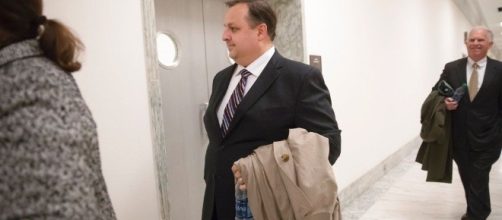Walter M. Shaub Jr., the administration's top morals guard dog, who has more than once clashed with the Trump organization over irreconcilable situations, said on Thursday that he was throwing in the towel.
Mr. Shaub's five-year term as the executive of the Workplace of Government Morals is not set to lapse until January, but rather with minimal possibility of recharging and an engaging offer close by from an impartial backing gathering, he said the time was on the right track to take off.
"There isn't a great deal more I could achieve at the Workplace of Government Morals, given the present circumstance," Mr.
Shaub said in a meeting on Thursday. "O.G.E's. current encounters have made it clear that the morals program should get fortified." His new position, he stated, will enable him to advocate uninhibitedly for such changes.
The reason for Shaub's resignation
In a short letter illuminating President Trump of his choice, Mr. Shaub did not offer a particular purpose behind his flight but rather praised "the rule that open administration is an open put stock in, expecting representatives to put faithfulness to the Constitution, the laws and moral standards above private pick up." He said he had not been influenced to leave.
The White House quickly acknowledged Mr. Shaub's acquiescence, and Lindsay E.
Walters, a White House representative, stated in an announcement that the organization "values his administration." Mr. Trump, she said, would designate a successor "in short request."
By withdrawing in front of the calendar, Mr. Shaub gave Mr. Trump a chance to start putting his blemish in the office supervising the government's massive morals program, including that of the White House.
The workplace's executive has had ample scope to set its needs, its tone in working with the White House and other government organizations, and, maybe most critical, how to decipher the nation's morals laws.
President Trump on Shaub
The opportunity is everything except sure to terrify Democrats and those in the little universe of government morals who see the workplace under Mr.
Shaub as a critical political rampart against irreconcilable situations in the more elite classes of the legislature. To Mr. Trump's safeguards, who have seen Mr. Shaub, an Obama representative, as politically propelled, it is more welcome news.
The force of feeling over what is a dark employment addresses the focal part morals have come to play in President Trump's Washington, where the vast possessions of the president and his bureau, and also a convergence of consultants from organizations and campaigning firms, have raised a rash of allegations of irreconcilable situations. It is the occupation of the moral's office, a formation of a post-Watergate Congress, to work with a web of morals authorities at every position to help individuals entering the administration evade potential clashes.
The workplace manages every organization's executive nominees through money related revelation necessities and makes understandings to confine support in consultations over subjects they dealt with for paying customers.


